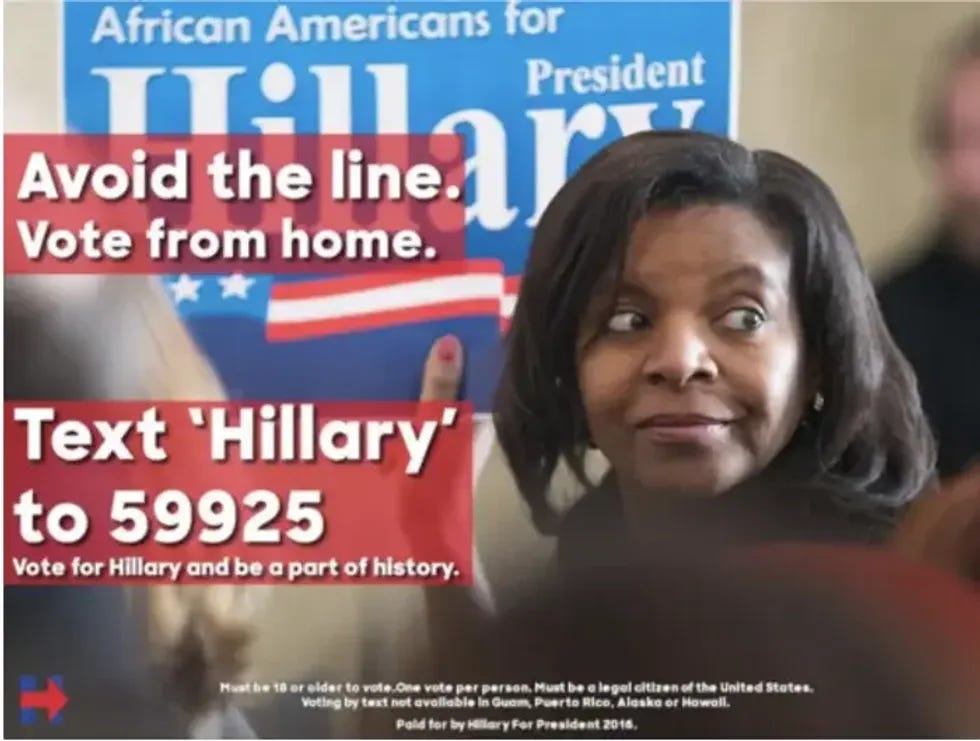What's Going On With The Ricky Vaughn Trial?
An explainer!
Closing arguments for the Ricky Vaughn trial will commence today, and as such, we thought we'd do a little explainer to catch everyone up on what the hell is going on here.
Who Is Ricky Vaughn?
Ricky Vaughn is the alias of 33-year-old notorious far-right, white nationalist, pro-Trump Twitter troll Douglass Mackey, stolen from the name of Charlie Sheen's character in the 1989 film Major League . Along with several others like him, Mackey helped normalize extreme and overt anti-Semitism in the Republican party. Tucker Carlson describes him as a "conservative journalist," despite the fact that he has not actually produced any "journalism."
Mackey, as his alias Ricky Vaughn, was determined by the MIT Media Lab to have been the 107th most influential person in the 2016 election, ahead of NBC News, Stephen Colbert, and Newt Gingrich.
Mackey's real identity was revealed in April of 2018 by fellow white nationalist Paul Nehlen, who felt that Mackey and others had gone too mainstream and later confirmed by the Huffington Post. Because of this, the Justice Department was able to build a case against him, eventually arresting him in January of 2021.
What Did He Do?
Mackey was not arrested for loving Donald Trump too much or for criticizing Hillary Clinton. He was arrested for conspiracy to deprive others of their right to vote. Specifically, Mackey created and posted a fake ad, targeting Black people, telling Clinton voters that they could vote by text message, which of course they could not.

Specifically, Mackey is being charged under 18 U.S.C. § 241 , which "makes it unlawful for two or more persons to agree to injure, threaten, or intimidate a person in the United States in the free exercise or enjoyment of any right or privilege secured by the Constitution or laws of the United States or because of his or her having exercised such a right," a crime punishable by up to 10 years in prison.
Mackey and his supporters claim that the image was merely a "shitpost" and a meme, and was intended to be satire rather than a sincere effort to keep people from voting. That story has been undermined by transcripts of chats Mackey was involved in, in which he talked about how the goal was to keep Black people from voting so that Trump would win, along with testimony from fellow troll and current FBI informant Microchip, who confirmed last week that this was the actual purpose of the fake ad.
The prosecution also introduced evidence showing that Mackey had called Black people, whom he specifically targeted with the fake ad, "the most gullible."
None
— (@)
Supporters have compared the meme to stupid old jokes like "Democrats vote on Tuesday, Republicans vote on Wednesday." However, while it's clear that that's a joke, the fake ad was designed to look like a legitimate advertisement from Hillary Clinton's campaign, featuring a Black woman next to a sign reading "African-Americans for President Hillary," along with logos associated with the Clinton campaign and even a disclosure at the bottom that it was "Paid for by Hillary Clinton 2016." It also included a number for people to text — a number prosecutors say received 5,000 messages.
So Is This A Free Speech Issue Or A Voter Suppression Issue?
Mackey, his supporters, and his lawyers contend that it is a free speech issue, and to some degree it is. It's very much about where the line between protected free speech and actual voter suppression is. The fact is, it is legal to lie in political campaigns, even if that makes people less likely to vote for one's opponent, so long as it doesn't cross the line of defamation. President George H.W. Bush wasn't going to be sent to prison for promising "no new taxes" and then later reneging on that promise.
However, it becomes a little more murky when it comes to keeping people from voting, though most of the precedent for cases like this have been related to robocalls, which can be prosecuted as telecommunications fraud. Last year, Jacob Wohl and Jack Burkman pleaded guilty to telecommunications fraud for sending out thousands of robocalls targeting Black voters and telling them that the information they gave by voting by mail could be used by law enforcement and debt collectors.
In 2011, Paul Schurick, the campaign manager for former Maryland governor Robert L. Ehrlich Jr., was sent to prison for having put out robocalls to supporters of Martin O'Malley that said, “Hello. I’m calling to let everyone know that Governor O’Malley and President Obama have been successful. Our goals have been met. The polls were correct, and we took it back. We’re okay. Relax. Everything’s fine. The only thing left is to watch it on TV tonight. Congratulations, and thank you.”
If these examples are fraud, then what Mackey did is certainly also fraud.
Part of the problem with this case, admittedly, is whether the statute he is being charged under can be applied narrowly enough so that it does not create a precedent that could, in fact, inhibit free speech.
Democrats have, for many years now, tried to pass variations on the Deceptive Practices and Voter Intimidation Prevention Act — initially proposed by then-Senator Barack Obama in 2007 — which would specifically prohibit "any person, within 60 days before a federal election, from communicating, causing to be communicated, or producing for communication certain information on voting, if the person (1) knows such information to be materially false, and (2) has the intent to impede or prevent another person from exercising the right to vote in an election," as well as "false statements regarding public endorsements and hindering, interfering with, or preventing voting or registering to vote." That would have imposed a prison sentence of one year.
If that law existed, this would be relatively cut and dry, with no possible future implications, but it does not.
How Is The Trial Going So Far?
In his testimony, Microchip — who has already pleaded guilty to a conspiracy charge involving his own involvement in discouraging Clinton supporters from voting correctly — explained that his goal was to cause chaos and destroy Clinton's reputation at any cost. He specifically cited the leaked John Podesta emails that led to the Pizzagate conspiracy, saying there was nothing bad or sinister in the emails but he made it seem like there was. “My talent is to make things weird and strange, so there is controversy.”
Mackey's lawyers have tried and largely failed at the "free speech" angle.
Via NY Daily News:
Mackey’s lawyer Andrew Frisch has unsuccessfully tried to get the case tossed on First Amendment grounds . In direct testimony, he had Mackey identify a 2016 tweet by comedian Kristina Wong telling Trump supporters to vote by text, and on the wrong day.
That tweet has been making the rounds in conservative social media circles, in an attempt to paint Mackey as the victim of a politicized federal justice system.Mackey’s contention is that he was merely ”s--tposting” to get a rise out of Clinton’s campaign and supporters, and that he had no intent to deceive because he didn’t think anyone could possibly believe they were allowed to vote by text.
“Especially when it comes from a Twitter account with a MAGA hat and a Bane mask ,” he said, describing his profile picture. “It’s not that I didn’t think it would work. I wasn’t trying to get it to work.”
The difference between Mackey's post and Kristina Wong's, however, is that Wong's image was a picture of herself in a MAGA hat — not an official-looking flyer. She also did not include an actual number to text and told people to get ready to vote on "Super Wednesday," which is more obviously a joke.
Mackey, meanwhile, belonged to a group chat for Trump trolls called "The War Room," in which people actually discussed how to make the fake ads more believable, though he claimed on the stand not to have seen any of those discussions. He claims he just copied and pasted something he found on 4chan and that the meme featuring a Black woman was entirely coincidental.
Mackey reportedly "choked up" when confronted about his history of racist and sexist tweets, including those about how women shouldn't be allowed to vote, and asked if he'd ever apologized for them.
“Yes, I have,” he said. “To my family.”
Do your Amazon shopping through this link, because reasons .
Wonkette is independent and fully funded by readers like you. Click below to tip us!




She's just helping.
Also aggressive-aggressive fucksticks too (bullies) particularly on Finding Out Eve.